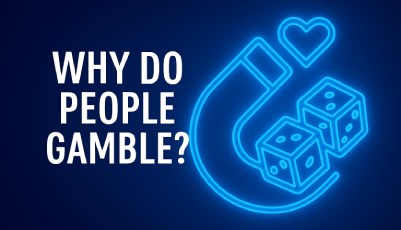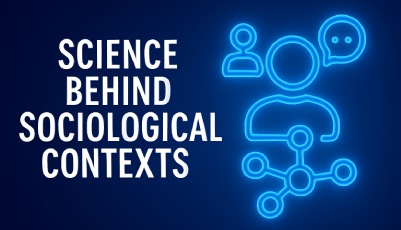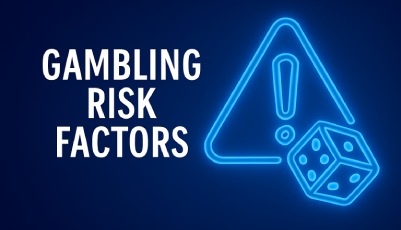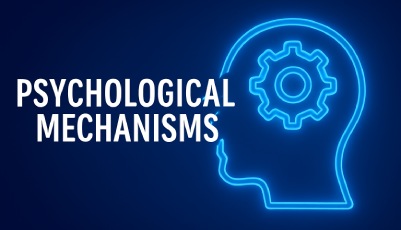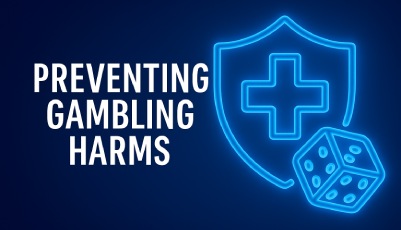Understanding Emotional Regulation
According to Martínez-Priego et al. (2024), people have the ability to determine how they feel and how they express these feelings to others, and this is what researchers refer to as emotional regulation. It is the act of not only being aware of how you feel but also deciding what you will do with those feelings. People who are able to navigate their emotions well as said to have good emotional regulation, while those who struggle with their emotions are said to be emotionally dysregulated.
Explaining Problem Gambling
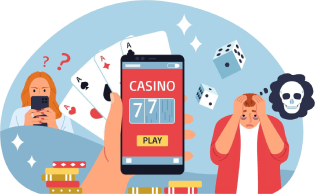
While many people are able to engage in gambling and know when to stop, some people cannot stop as easily, which, as Lee et al. (2024) explain, is known as problem gambling. It is a behavioral addiction where those affected experience compulsive urges to gamble even when the consequences of their actions may hurt them or others.
Over time, they find themselves placing wagers, not because they want money, but because they cannot stop gambling. What’s more, their dopamine sensitivity reduces such that they feel the urge to spend more time and money on gambling in search of excitement. Due to this, they often engage in behaviors such as lying and stealing so that they can get more time or money to use in gambling. And eventually, these actions start taking a toll on their financial, social, and psychological well-being.
“These findings highlight that gambling to reduce negative emotions can increase the potential for gambling harm.” Lee et al. (2024).
Is There a Link Between the Two?
By reviewing open-access academic journal articles from reputable publishers that centered on emotional regulation and problem gambling, we were able to find a strong link between emotional regulation and problem gambling. Per our findings, research has shown that people who have trouble regulating their emotions are more likely to develop problem gambling habits as compared to those with better emotional regulation tactics (Marchica et al., 2019). Why is that?
A Form of Coping
People who have poor emotional regulation often have low stress tolerance and rely on external factors to cope with or avoid unwanted feelings, such as stress, boredom, or anxiety. As such, if they engage in gambling and experience a dopamine rush, these experiences signal to their brains that gambling is a good activity, thus creating a positive feedback loop. Naturally, any time that they face a frustration, including the small ones, they will want to gamble more to feel this relief, which predisposes them to problem gambling (Martínez-Priego et al., 2024; Marchica et al., 2019).
A Tendency to Be Impulsive
Problem gamblers are often unable to control their emotions when faced with stress. As a result, when they experience unwanted or overwhelming feelings, their impulse may be to gamble to immediately escape the situation, which they cannot control (Marchica et al., 2019). Martínez-Priego et al. (2024) add to this by stating that people with emotional dysregulation often have maladaptive strategies such as emotional suppression or avoidance. Since they do not address their negative emotions, these emotions bubble under the surface and become more intense over time, thus pushing them to gamble more to avoid them even further (Marchica et al., 2019).
Trouble with Emotional Expression
For people with emotional dysregulation, the process of naming and addressing emotions is not only difficult but also uncomfortable. Many of them turn to external sources of validation or distraction. When such people turn to gambling, they are able to escape their emotions and may see it as an emotional outlet, which, as Marchica et al. (2019) explain, compounds the issue.
The Allure of Emotional Rollercoasters
As Lee et al. (2024) explain, gambling involves a series of highs and lows resulting from the unpredictable wins and losses. People with emotional dysregulation keep playing for two reasons. First, they want to enjoy the thrill of winning, as this gives them a sense of control and encourages them to keep playing. Secondly, they want to avoid the disappointment that comes from losing. It’s thus quite common for people with problem gambling patterns to keep chasing losses (investing more money in wagers even after losing) because they want to avoid the negative feelings and experience another dopamine rush – they can do this even when the objective decision would be to stop playing.
“The findings suggest that individuals with greater emotional regulation difficulties may engage in problem gambling to help manage aversive emotional states.” Lee et al. (2024).
Examples of Case Studies
In a study involving 187 regular gamblers, Lee et al. (2024) sought to find out whether emotional dysregulation was strongly linked to problem gambling. They found that people with poor emotional regulation were more likely to use gambling as a way to manage negative emotions, which increased their likelihood of problem gambling. Estévez et al. (2022) embarked on a similar study whose aim was to find out whether shame and blame affected gambling habits and whether emotional regulation could help mediate these relationships. With a sample size of 158 people aged 12 to 30, the researchers found that shame contributed significantly to problem gambling and was partially mediated by self-blame. More interestingly, they found that emotional regulation could help people manage their emotional experiences, which altered their gambling habits.
Takeaway
Emotional regulation plays a critical role in how human beings interact with themselves and the world. Since studies have shown that emotional dysregulation can predispose people to problem gambling, existing gambling intervention and prevention strategies need to address emotional regulation strategies to help people be more aware of their emotional states.
FAQs
While it may not cause problem gambling directly, it predisposes people to use gambling as a way to cope with negative emotions.
People often gamble to avoid negative emotions such as stress or boredom. However, positive emotions, like thrill-seeking, can also play a part in this.
Yes. People who have positive emotional outlets are better able to cope with emotions and are less likely to gamble as a form of escape.
References
- Estévez, A., Momeñe, J., Jauregui, P., & Etxaburu, N. (2022). Shame and Blame in Gambling: Relationship with Emotion Regulation and Gambling Motives. International Journal of Mental Health and Addiction, 22, 2012–2027. https://link.springer.com/article/10.1007/s11469-022-00970-3
- Lee, A., Flack, M., & Caudwell, K. M. (2024). Excite, or Take Flight? Exploring the Relationship between Difficulties with Emotion Regulation, Outcome Expectancies, and Problem Gambling. Journal of Gambling Studies, 41, 233–245. https://link.springer.com/article/10.1007/s10899-024-10340-4
- Marchica, L., Mills, D. J., Derevensky, J. L., & Montreuil, T. (2019). The Role of Emotion Regulation in Video Gaming and Gambling Disorder: A Systematic Review. The Canadian Journal of Addiction, 10(4), 19–32. https://www.researchgate.net/publication/337144595_The_Role_of_Emotion_Regulation_in_Video_Gaming_and_Gambling_Disorder_A_Systematic_Review
- Martínez-Priego, C., Poveda García-Noblejas, B., & Roca, P. (2024). Strategies and goals in Emotion Regulation models: A systematic review. Frontiers in Psychology, 15, Article 1425465. https://www.frontiersin.org/journals/psychology/articles/10.3389/fpsyg.2024.1425465/full
